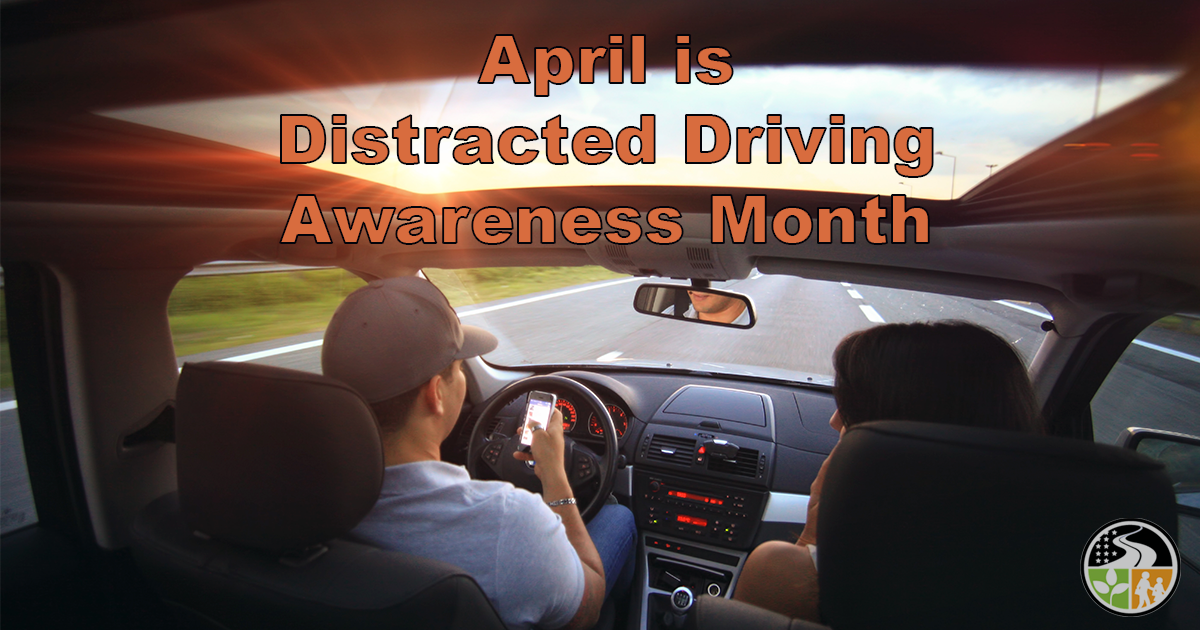April is Distracted Driving Awareness Month

Distracted driving—your first thought may be of cell phone use, but many other circumstances can be just as distracting. For instance, a phone call may suddenly ping in on your dashboard touchscreen, you may be scanning to find your favorite song in an endless playlist, or you could even just be trying to figure out how to move the automatic seat back just one more inch.
Every single day 100 Americans are injured in distracted driving crashes. Almost 10 people die in distracted driving crashes every day. That’s why the U.S. Department of Transportation launches a National Distracted Driving Awareness Month every year in April. The goal is to remind drivers just how dangerous it is to let their eyes—and attention—stray from the road.
Everyone knows that texting and driving don’t mix. Looking down at that little keyboard on your cell phone is an obvious no-no. But what about hands-free calls? The reality is that hands-free calls are not distraction-free calls. You still need to concentrate on getting through the technology of answering the call, managing volume controls, and then ending the call.
Those seconds of distraction can have serious consequences. Keeping your eyes off the road for just five seconds means that you’ll be going the length of one whole football field without looking up, which is certainly enough time and space to invite disaster.
How you can decrease distractions when driving
– Consider keeping your cell phone on silence, and preferably out of sight, when driving. Then you won’t be tempted to answer.
– If you need to look for an address, program your GPS or get any information you need off the internet before you start the car.
– If you need to eat, pull over at an appropriate place to grab your bite, and then head on to your destination.
– If the seat just doesn’t feel right or the mirror needs adjusting, stop on the side of the road or in a parking lot before adjusting it. Or, better yet, check those details before taking off.
– Even if you’re not driving, you can keep safety first. If the driver of a vehicle you’re in begins to use a cell phone or engage in another kind of distracting activity, speak up! Your health or life could be at stake.
– Get plenty of sleep. Drowsy driving and distracted driving are closely related. Some crashes that are attributed to distracted driving are actually a result of drowsy driving. And let's be honest, if you are tired and dreaming of how nice it would be to lay your head down on your pillow—are you really paying attention to the road?
- 2023
- 2022
- 2021
- 2020
- 2019
- 2018
- 2017
